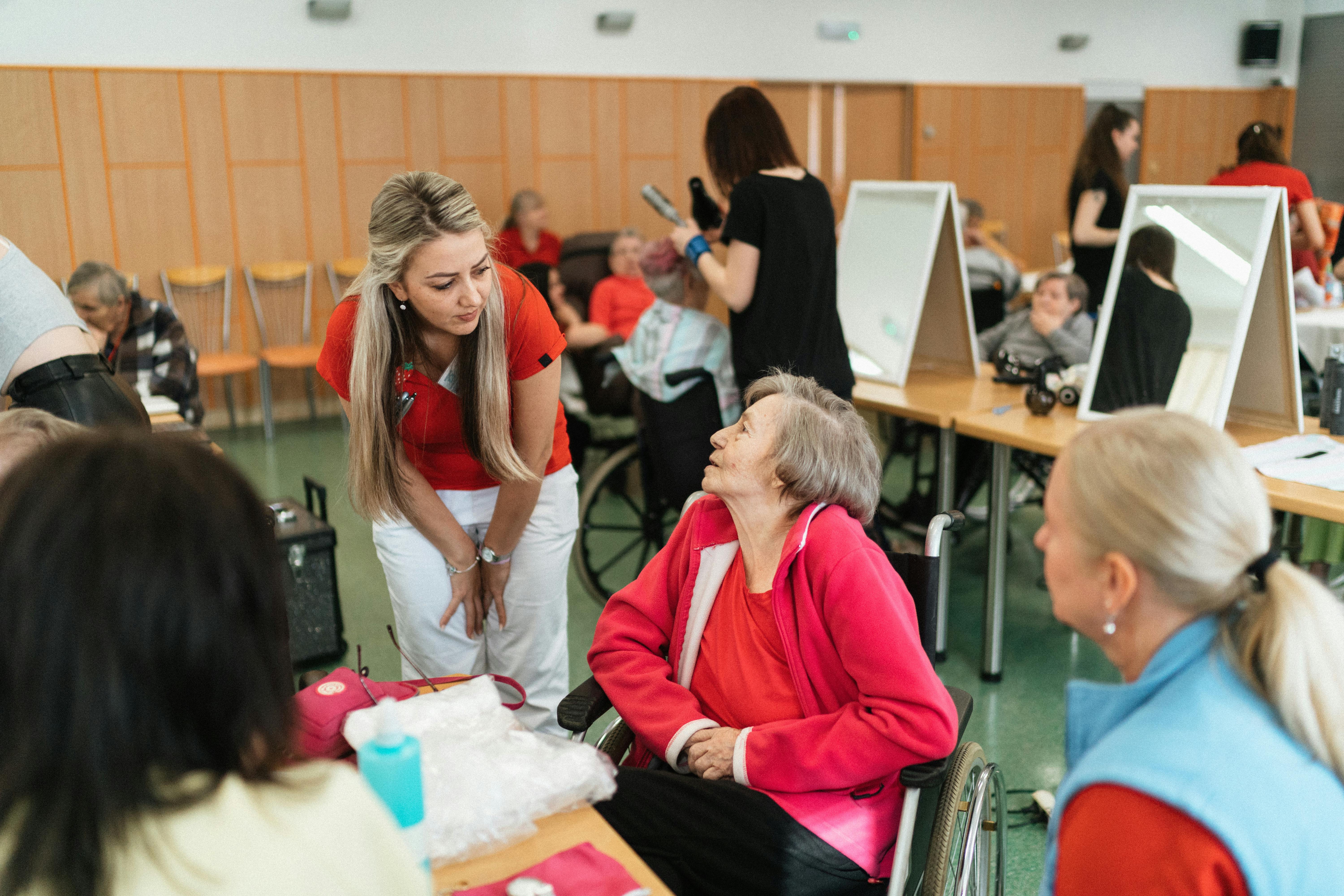If we know one thing, it’s that care work is essential and skilled work. So why is caregiving often undervalued? Here are some of the factors contributing to this stigma:
- Gender: Caregiving has traditionally been women’s work and the majority of today’s home care workers are women, women of color, and immigrants. This historical and present day division of labor contributes to people seeing care work as low status.
- Unpaid Labor and Low Pay: Caregiving work has historically been unpaid or underpaid. Even in professional caregiving roles today, wages are low and benefits are often lacking. This reinforces the perception of caregiving as low value.
- Perception of Skill: There is a misconception that caregiving does not require specialized skills or training. Caregiving jobs require medical knowledge, communication skills, and physical skills that must be taught and practiced.
- Downplaying Emotional Labor: Caregiving involves emotional support, empathy, and relationship-building, which are often undervalued compared to “hard skills.”
When we don’t value care workers, we undervalue care and undermine care quality.
That’s why we do things differently. At Home Care Associates, we pride ourselves in celebrating the skill it takes to be a quality caregiver.
5 Keys to Valuing Care Workers
According to PHI, the leading national expert on home care jobs and training, there are 5 key pillars of making home care jobs good jobs:
#1 Quality Training
#2 Fair Compensation
#3 Quality Supervision & Support
#4 Respect & Recognition
#5 Real Opportunity
Read on to hear about how our cooperatively owned home care agency delivers in each of these five areas.
Key #1: Quality Training
A quality direct care job should ensure
that all workers acquire the skills,
knowledge, and confidence to succeed
in their complex roles. - PHI
At Home Care Associates we make sure that all of our caregivers, including those new to the job, are properly trained and prepared to provide the best care to our clients with confidence and compassion. We do this by:
- Exceeding all training requirements set by the state
- Providing hands-on training opportunities where caregivers can practice with the guidance of experienced trainers
- Matching new caregivers with experienced mentors
- Providing access to educational resources such as online courses and printed materials
- Connecting our caregivers to a peer support network of other cooperative caregivers all over the country, including through an annual conference
Key #2: Fair Compensation
A quality direct care job should
enable workers to achieve economically
stability, safeguard their health,
and plan for the future. - PHI
At Home Care Associates, we put a lot of thought and care into how to compensate our caregivers and make our Cooperative a place where caregivers want to stay long-term. We do this by:
- Paying more than our local competitors
- Doing our best to give caregivers the hours they want so they can earn the wages they want. While we can’t give everyone their perfect schedule, we put effort into understanding your scheduling needs and preferences.
- Paid time off and paid sick days
- A bus pass to support transportation
Key #3: Quality Supervision & Support
A quality direct care job should offer
workers the support and supervision
they need to work safely and effectively. -PHI
Providing intentional, attentive supervision and support is core to our mission. It is important to us that our caregivers - new employees and long-term worker-owners, alike - know that they’re not alone. Here are some of the ways that we practice this value:
- Providing clear job requirements so that caregivers know what’s expected of them and what’s outside the bounds of their job
- Establishing clear workflows so caregivers know who to turn to when challenges arise
- Accompanying caregivers to meet new clients and help establish a warm handoff
- Maintaining an open-door policy
- Offering peer mentors for support in addition to supervisors
Key #4: Respect & Recognition
A quality direct care job should honor
the expertise, contributions, and diverse
life experience of workers. - PHI
There is no greater proof that we respect and recognize the importance of caregivers than the fact that we are owned by caregivers! As a worker-owned company, we are committed to providing high quality service to our customers and great employment to our workers, putting our workers at the center of our business decisions. Here are some other ways we demonstrate respect and recognition for caregivers:
- Being caregiver-owned! We know firsthand how skilled and capable caregivers are because caregivers run our company.
- Providing opportunities for caregivers to impact business decisions through participation in the Board of Directors or committees
- Communicating clearly and in advance about any business or policy changes that might impact caregivers
- Celebrating caregivers through regular caregiver appreciation events and a Caregiver of the Month award
- Giving thank-you gifts when caregivers go above and beyond for their clients or the cooperative
Key #5: Real Opportunity
A quality direct care job should invest
in workers’ learning, development, and
career advancement. - PHI
At Home Care Associates, we care about our caregiver’s interests, goals, and futures. Here are a few of the ways we invest in our caregivers beyond the day-to-day:
- Providing continuous paid learning opportunities so caregivers can continue to build new skills.
- Creating opportunities for caregivers to become mentors or peer leaders
- Promoting from within our organization so that interested caregivers can take on more administrative roles
- Providing connections to other training and career development opportunities in the community
- Maintaining a commitment to caregiver leadership on our Board of Directors, and providing training to new Board members.
Our team understands the importance of respecting and rewarding the essential work of caregiving, as we are caregivers ourselves.
If you’re interested in learning more about what it might feel like to work in a supportive environment, our doors are always open.






